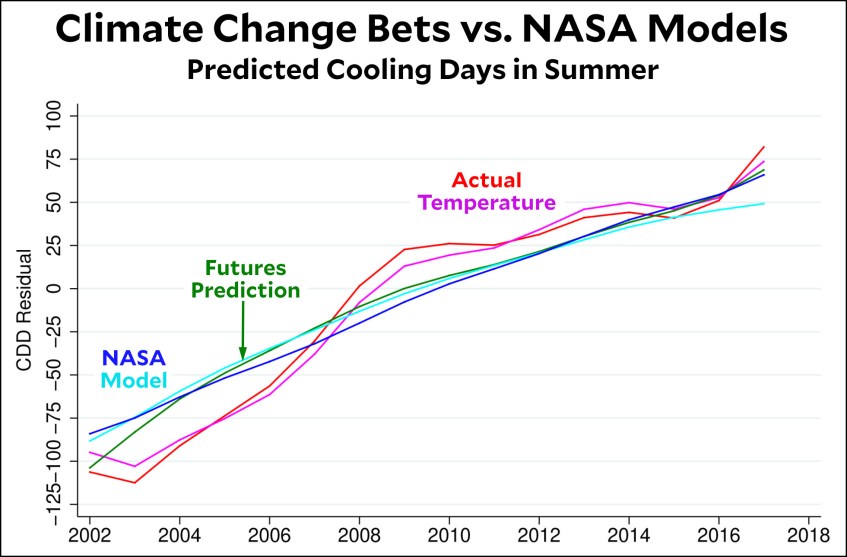
Christina Animashaun/Vox
This story was originally published by Vox.com and is reproduced here as part of the Climate Desk collaboration.
If you’re reading this, chances are you care a lot about fighting climate change, and that’s great. The climate emergency threatens all of humanity. And although the world has started to make some progress on it, our global response is still extremely lacking.
The trouble is, it can be genuinely hard to figure out how to direct your money wisely if you want to reduce greenhouse gas emissions. There’s a glut of environmental organizations out there—but how do you know which are the most impactful?
To help, here’s a list of 11 of the most high-impact, cost-effective, and evidence-based organizations. We’re not including bigger-name groups, such as the Environmental Defense Fund, the Nature Conservancy, or the Natural Resources Defense Council, because most big organizations are already relatively well-funded.
The groups we list below seem to be doing something especially promising in the light of criteria that matter for effectiveness: importance, tractability, and neglectedness.
Important targets for change are ones that drive a big portion of global emissions. Tractable problems are ones where we can actually make progress right now. And neglected problems are ones that aren’t already getting a big influx of cash from other sources like the government or philanthropy, and could really use money from smaller donors.
Founders Pledge, an organization that guides entrepreneurs committed to donating a portion of their proceeds to effective charities, and Giving Green, a climate charity evaluator, used these criteria to assess climate organizations. Their research informed the list below. As in the Founders Pledge and Giving Green recommendations, we’ve chosen to look at groups focused on mitigation (tackling the root causes of climate change by reducing emissions) rather than adaptation (decreasing the suffering from the impacts of climate change). Both are important, but the focus here is preventing further catastrophe.
Arguably the best move is to donate not to an individual charity, but to a fund—like the Founders Pledge Climate Change Fund or the Giving Green Fund. Experts at those groups pool together donor money and give it out to the charities they deem most effective, right when extra funding is most needed. That can mean making time-sensitive grants to promote the writing of an important report, or stepping in when a charity becomes acutely funding-constrained.
That said, some of us like to be able to decide exactly which charity our money ends up with—maybe because we have especially high confidence in one or two charities relative to the others—rather than letting experts split the cash over a range of different groups.
With that in mind, we’re listing below the individual organizations where your money is likely to have an exceptionally positive impact.
Clean Air Task Force
What it does: The Clean Air Task Force is a US-based non-governmental organization that has been working to reduce air pollution since its founding in 1996. It led a successful campaign to reduce the pollution caused by coal-fired power plants in the US, helped limit the US power sector’s CO2 emissions, and helped establish regulations of diesel, shipping, and methane emissions. CATF also advocates for the adoption of neglected low- and zero-carbon technologies, from advanced nuclear power to super-hot rock geothermal energy.
Why you should consider donating: In addition to its seriously impressive record of success and the high quality of its research, CATF does well on the neglectedness criterion: It often concentrates on targeting emissions sources that are neglected by other environmental organizations, and on scaling up deployment of technologies that are crucial for decarbonization, yet passed over by NGOs and governments. For example, it was one of the first major environmental groups to publicly campaign against overlooked superpollutants like methane.
More recently, CATF has been expanding beyond the US to operate in Africa, the Middle East, and elsewhere. This is crucial: About 35 percent of climate philanthropy goes to the US and about 10 percent to Europe, which together represent only about 15 percent of future emissions, according to Founders Pledge. This is part of why Founders Pledge is supporting CATF’s efforts to globalize and recommends giving to that organization. CATF is also one of Giving Green’s top picks.
Future Cleantech Architects
What it does: This Germany-based organization is relatively young. Its aim is to promote innovation in Europe’s hard-to-decarbonize sectors by running key programs in, for example, zero-carbon fuels, industry, and carbon removal technologies.
Why you should consider donating: You might be wondering if this kind of innovation really meets the “neglectedness” criterion—don’t we already have a lot of innovation? In the US, yes. But in Europe, this kind of organization is much rarer. And according to Founders Pledge, it’s already exceeded expectations at improving the European climate policy response. Most notably, it has helped shape key legislation at the EU level and advised policymakers on how to get the most bang for their buck when supporting research and development for clean energy tech. As of 2024, Giving Green recommends this organization, too.
You can donate to Future Cleantech Architects here.
Good Food Institute
What it does: The Good Food Institute works to make alternative proteins (think plant-based burgers) competitive with conventional proteins like beef, which could help reduce livestock consumption. It engages in scientific research, industry partnerships, and government advocacy that improves the odds of alternative proteins going mainstream.
Why you should consider donating: Raising animals for meat is responsible for at least 10 percent of global emissions. These animals belch the superpollutant methane. Plus, we humans tend to deforest a lot of land for them to graze on, even though we all know the world needs more trees, not less. Yet there hasn’t been very much government effort to substantially cut agricultural emissions. Giving Green recommends the Good Food Institute because of its potential to help with that, noting, “GFI added significant wins to its track record in 2024. Highlights include its partnership with the Bezos Earth Fund to unlock $100 million of funding for three global alternative protein research centers, engagement with Singapore’s Islamic council on the first-ever authoritative ruling that cultivated meat can be halal, and opening GFI’s newest office in Japan.”
Industrious Labs
What it does: This is a newish organization with one clear goal: helping global “heavy industry”—think steel and cement—go green. Through advocacy, Industrious Labs pushes corporations to make low-carbon commitments, and pushes governments to make sure that regulations and public funding are in place to accelerate the transition.
Why you should consider donating: Steel and cement are “can’t live with ’em, can’t live without ’em” kind of industries. We need them to build, yet they account for one-third of greenhouse gas emissions. And these industries are bizarrely neglected by both government and philanthropy. Helping them go green could make a big difference, which is why Giving Green recommends Industrious Labs.
You can donate to Industrious Labs here.
DEPLOY/US
What it does: This nonpartisan nonprofit works with American conservatives—yes, you read that right—to enact decarbonization policies, with the goal of reaching net-zero emissions by 2050. DEPLOY/US partners with philanthropic, business, military, faith, youth, policy, and grassroots organizations to shape a decarbonization strategy and generate policy change.
Why you should consider donating: In case you haven’t heard of the eco-right, it’s important to know that there are genuine right-of-center climate groups that want to build support for decarbonization based on conservative principles. These groups have a crucial role to play; they can weaken political polarization around climate and increase Republican support for bold decarbonization policies, which will be especially important with Republicans moving into the White House soon. Right now, these groups are incredibly underfunded. Founders Pledge recommends donating to DEPLOY/US because it’s uniquely positioned to insulate climate policy against the shifting winds of politics.
Energy for Growth Hub
What it does: Founded by Todd Moss in 2013, Energy for Growth Hub aims to make electricity reliable and affordable for everyone. The organization hopes to end energy poverty through climate-friendly solutions.
Why you should consider donating: While Energy for Growth Hub is not a strictly climate-focused organization—ending energy poverty is its main goal—it’s still a leader in the clean energy space. The organization will use your donation to fund projects that produce insight for companies and policymakers on how to create the energy-rich, climate-friendly future they’re dreaming of.
You can donate to Energy for Growth Hub here.
Project InnerSpace
What it does: This US-based nonprofit hopes to unlock the power of heat—geothermal energy—lying beneath the Earth’s surface. Launched in 2022, Project InnerSpace seeks to expand global access to carbon-free heat and electricity, particularly to populations in the Global South. The organization maps geothermal resources and identifies geothermal projects in need of further funding.
Why you should consider donating: Most geothermal power plants are located in places where geothermal energy is close to the Earth’s surface. Project InnerSpace will use your donation to better map geothermal energy hot spots and to drive geothermal energy costs down.
You can donate to Project InnerSpace here.
Opportunity Green
What it does: Opportunity Green aims to cut aviation and maritime shipping emissions through targeted regulation and policy initiatives. The UK-based nonprofit was founded in 2021, and since then has aimed to encourage private sector adoption of clean energy alternatives.
Why you should consider donating: As a newer organization, Opportunity Green is still growing and could use your donation to increase its staff, including bringing on senior lawyers who can help fight for its proposed policy initiatives. “We are especially excited about Opportunity Green’s efforts to elevate climate-vulnerable countries in policy discussions, as we think this could improve the inclusivity of the process and the ambition level of policies,” Giving Green notes.
You can donate to Opportunity Green here.
Carbon-Free Europe
What it does: This European initiative researches the tradeoffs of various net-zero strategies and advocates for technology-inclusive climate policy to get governments on track to meet decarbonization goals by 2050.
Why you should consider donating: With a Republican trifecta in power, climate policy in the United States is likely to be stunted to some degree in the coming years. Europe is a key area for global decarbonization efforts, and while recent European Parliamentary elections have also shifted towards the right, diversifying where your money goes can help ensure progress is made and defended in other critical regions.
CFE in particular also produces an Annual Decarbonization Perspective, which analyzes the costs of different net-zero emission strategies across the EU and the UK—an insightful tool policymakers can use to make evidence-based decisions.
You can donate to Carbon-Free Europe by clicking here and designating “Carbon-Free Europe.”
Quantified Carbon
What it does: Quantified Carbon is an international consultancy firm that supplies analysis and solutions towards decarbonization, with a particular expertise in energy systems and industrial transitions.
Why you should consider donating: The firm leads and manages Repower, an initiative that is working on repowering existing coal plants. They’re working with local teams in places where this work is needed most (like parts of Asia where coal-powered units have been built in recent years), and providing a techno-economic analysis to help retrofit these plants with clean heat sources. Founders Pledge recommends donating to Quantified Carbon for this critical work on transitions in the energy industry.
You can donate to Quantified Carbon here.
WePlanet
What it does: WePlanet is a young, international grassroots organization that’s building support for nuclear energy, gene-edited crops, and lab-grown meat, all of which are nontraditional priorities for the climate movement space.
Why you should consider donating: Making progress relies in large part on the strength and persuasion of on-the-ground, people-led movements, especially for a challenge as great as climate change — and WePlanet is doing that work. In just a few years, they’ve put down roots across four continents, which explains why Founders Pledge recommends donating to WePlanet for their savviness in movement-building. They also focus on climate solutions that the environmental movement has historically turned away from, meaning they’re working on ideas that have long been neglected.
You can donate to WePlanet here.
















